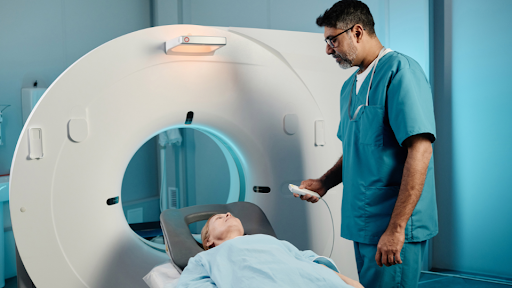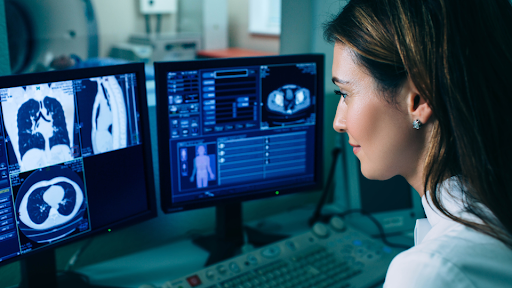A cardiac CT scan, also known as a coronary CT angiography, is a non-invasive imaging technique that provides detailed images of the heart and blood vessels. This diagnostic tool is increasingly used to assess coronary artery disease and other heart-related conditions. If you are scheduled for a cardiac CT scan, understanding what to expect can help ease any anxiety and prepare you for the procedure.
 Understanding Cardiac CT Scans
Understanding Cardiac CT Scans
Cardiac CT scans utilize advanced imaging technology to create cross-sectional images of the heart. Unlike traditional X-rays, a CT scan captures multiple images in a single rotation, allowing for a more comprehensive view of the heart's structure and function. This technique is particularly valuable in identifying blockages or abnormalities in the coronary arteries. Furthermore, cardiac CT scans can also assess the presence of coronary artery disease, evaluate heart function, and even provide insights into the heart's anatomy, making it a versatile tool in cardiovascular diagnostics.
How Does a Cardiac CT Scan Work?
The procedure involves the use of a CT scanner, which is a large, doughnut-shaped machine. During the scan, you will lie on a table that slides into the scanner. The machine will rotate around you, taking a series of images from different angles. These images are then processed by a computer to create detailed cross-sectional images of your heart. The speed of the scan is particularly noteworthy; most cardiac CT scans can be completed in just a few minutes, minimizing the time you need to hold your breath and ensuring a more comfortable experience.
Before the scan, you may be asked to refrain from eating or drinking for a few hours. This helps ensure that the images are clear and unobstructed. Additionally, you might be given a contrast dye, either orally or through an IV, to enhance the visibility of blood vessels during the scan. The use of contrast dye is crucial, as it allows the radiologist to differentiate between the heart's structures and the surrounding tissues, providing a clearer picture of any potential issues.
Preparation for the Scan
Preparation is key to ensuring accurate results. Your healthcare provider will give you specific instructions on how to prepare for your cardiac CT scan. This may include avoiding caffeine and certain medications that can affect your heart rate. In some cases, you may be asked to take a beta-blocker to help slow your heart rate, allowing for clearer images. It's also advisable to wear comfortable clothing and avoid any metal accessories, as these can interfere with the imaging process.
It’s also important to inform your healthcare team about any allergies, especially to iodine or contrast materials, as these can impact your eligibility for the procedure. If you have a history of kidney problems, your doctor may take additional precautions before administering contrast dye. Additionally, understanding the potential risks and benefits of the scan can help alleviate any anxiety you may have about the procedure. Engaging in an open dialogue with your healthcare provider can ensure that you are well-informed and comfortable as you prepare for this important diagnostic tool.
During the Cardiac CT Scan
The actual scanning process typically takes less than 30 minutes, but you should plan for a longer visit to allow for preparation and recovery. Once you are positioned correctly, the technologist will step out of the room to operate the machine while monitoring you through a window. This careful setup is crucial to ensure that the images captured are of the highest quality, providing your healthcare provider with the most accurate information possible.
What to Expect
As the scan begins, you will hear a whirring sound as the machine operates. You may be instructed to hold your breath for short periods while the images are being captured. This helps reduce motion blur and improves the quality of the images. While the procedure is painless, some patients may experience a warm sensation when the contrast dye is injected. This sensation is typically brief but can be surprising, so it’s important to be prepared for it.
Throughout the scan, it’s essential to remain as still as possible. The technologist will provide guidance on when to breathe and when to hold your breath. If you have any concerns during the procedure, you can communicate with the staff via a microphone in the room. It's also helpful to focus on your breathing and stay relaxed, as anxiety can sometimes make it more difficult to remain still. Many facilities also offer calming music or guided breathing techniques to help ease any nervousness you may feel.
Post-Scan Instructions
After the scan is complete, you will be monitored for a short period to ensure there are no adverse reactions to the contrast dye. You can typically resume normal activities immediately, although some patients may experience mild side effects, such as a headache or a warm sensation that should subside quickly. It's advisable to drink plenty of fluids post-scan to help flush the contrast dye from your system, which can also assist in alleviating any lingering warmth or discomfort.
Your healthcare provider will discuss the results with you once they are available, which may take a few days. Depending on the findings, further tests or treatment options may be recommended. In some cases, the results can provide crucial insights into your heart health, potentially leading to lifestyle changes or preventative measures that can significantly impact your overall well-being. Understanding the implications of your scan results is vital, so don’t hesitate to ask your healthcare provider any questions you may have during your follow-up appointment.
Benefits of a Cardiac CT Scan
Cardiac CT scans offer several advantages in diagnosing heart conditions. They are non-invasive, require minimal preparation, and provide detailed images that can help identify issues early on. This early detection can be crucial in preventing more serious complications, such as heart attacks. By utilizing advanced imaging technology, healthcare providers can gain insights that were previously difficult to obtain, allowing for a more proactive approach to heart health.
 Quick and Accurate Diagnosis
Quick and Accurate Diagnosis
One of the primary benefits of a cardiac CT scan is the speed at which results can be obtained. Unlike traditional stress tests, which may take longer and require multiple visits, a CT scan can provide immediate insights into your heart health. This rapid diagnosis allows for timely intervention, which can significantly improve outcomes. Furthermore, the precision of the scan minimizes the chances of false positives, ensuring that patients receive accurate assessments of their cardiovascular status.
Comprehensive Imaging
The advanced imaging capabilities of cardiac CT scans allow for a thorough evaluation of the coronary arteries. This can help detect blockages, assess the severity of heart disease, and guide treatment decisions. The detailed images can also reveal other heart conditions, such as structural abnormalities or issues with heart function. In addition to coronary artery assessment, cardiac CT can also be instrumental in evaluating the aorta and other major vessels, providing a holistic view of the cardiovascular system. This comprehensive approach is particularly beneficial for patients with a family history of heart disease or those exhibiting risk factors, as it enables clinicians to tailor preventive strategies and interventions effectively.
Enhanced Risk Stratification
Another significant advantage of cardiac CT scans is their role in risk stratification. By evaluating the presence and extent of coronary artery disease, these scans can help determine a patient's risk for future cardiac events. This information is invaluable for developing personalized treatment plans that may include lifestyle modifications, medications, or even surgical interventions. Additionally, the ability to visualize coronary artery calcium scores through CT imaging can provide further insights into a patient's risk profile, allowing for more informed decision-making regarding their cardiovascular health.
Risks and Considerations
While cardiac CT scans are generally safe, there are some risks and considerations to keep in mind. The use of radiation is a primary concern, as CT scans expose patients to a small amount of ionizing radiation. However, the benefits of accurate diagnosis often outweigh the risks associated with radiation exposure.
Potential Allergic Reactions
Some patients may experience allergic reactions to the contrast dye used during the scan. Symptoms can range from mild (such as itching or rash) to severe (such as difficulty breathing). It’s crucial to inform your healthcare provider of any known allergies or previous reactions to contrast materials.
Kidney Function Considerations
Patients with pre-existing kidney conditions should discuss their health history with their healthcare provider before undergoing a cardiac CT scan. The contrast dye can sometimes cause kidney damage, especially in individuals with compromised kidney function. In such cases, alternative imaging methods may be considered.
When to Consider a Cardiac CT Scan
A cardiac CT scan may be recommended for various reasons, particularly if you are experiencing symptoms of heart disease. Common indications include chest pain, shortness of breath, or a family history of heart conditions. Additionally, it may be used as part of a routine screening for individuals at high risk of coronary artery disease.
Symptoms of Heart Disease
Recognizing the symptoms of heart disease is crucial for timely intervention. Common symptoms include chest discomfort, fatigue, dizziness, and irregular heartbeats. If you experience any of these symptoms, it’s essential to consult a healthcare professional who may recommend a cardiac CT scan as part of the diagnostic process.
Family History and Risk Factors
Individuals with a family history of heart disease or those with risk factors such as high blood pressure, high cholesterol, diabetes, or obesity may also benefit from a cardiac CT scan. Early detection of potential issues can lead to lifestyle changes or medical interventions that can significantly reduce the risk of serious heart conditions.
Utilizing Telehealth Services for Cardiac Care
In today's digital age, accessing healthcare has become more convenient than ever. Telehealth services, such as those offered by Doctronic, provide patients with the ability to consult with healthcare professionals from the comfort of their homes. This can be especially beneficial for individuals who may have difficulty traveling to appointments or those who prefer to discuss their health concerns remotely.
Consulting with a Healthcare Professional
Before undergoing a cardiac CT scan, it’s essential to have a thorough consultation with a healthcare provider. Telehealth platforms like Doctronic allow patients to discuss their symptoms, medical history, and any concerns they may have regarding the procedure. This can help ensure that the right tests are conducted and that patients feel informed and comfortable with their care.
Follow-Up Care and Support
After receiving the results of a cardiac CT scan, follow-up care is crucial. Telehealth services can facilitate ongoing communication with healthcare providers, allowing patients to ask questions, discuss treatment options, and receive support in managing their heart health. This continuous connection can enhance patient engagement and improve overall health outcomes.
Clarity for Your Heart Care
A cardiac CT scan is a valuable tool in diagnosing heart conditions, offering quick and accurate imaging that can guide treatment decisions. Understanding what to expect during the procedure can help alleviate anxiety and prepare patients for their visit. With advancements in telehealth services, such as those provided by Doctronic, accessing cardiac care has never been easier. By leveraging technology, patients can receive timely consultations, follow-up care, and support in managing their heart health, ultimately leading to better outcomes and improved quality of life.
Experience the Future of Cardiac Care with Doctronic
Ready to take control of your heart health with the precision of AI? Doctronic, the #1 AI Doctor, is here to transform your healthcare experience. Our AI doctor provides free, instant medical insights and personalized care, all at your fingertips. With over 10 million satisfied users and the backing of cutting-edge, peer-reviewed medical research, you can trust Doctronic for answers to your health questions and smart, attentive telehealth services. Don't wait for your next appointment; talk to an AI Doctor now, for free, and embrace a smarter, more personal approach to your well-being.



 Understanding Cardiac CT Scans
Understanding Cardiac CT Scans Quick and Accurate Diagnosis
Quick and Accurate Diagnosis